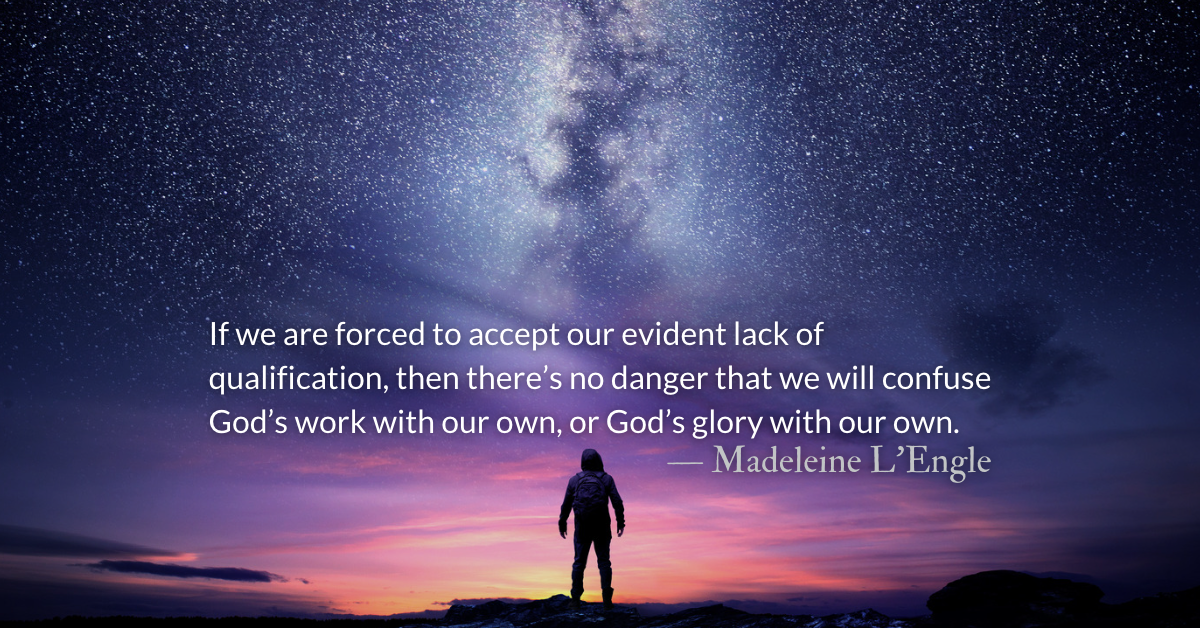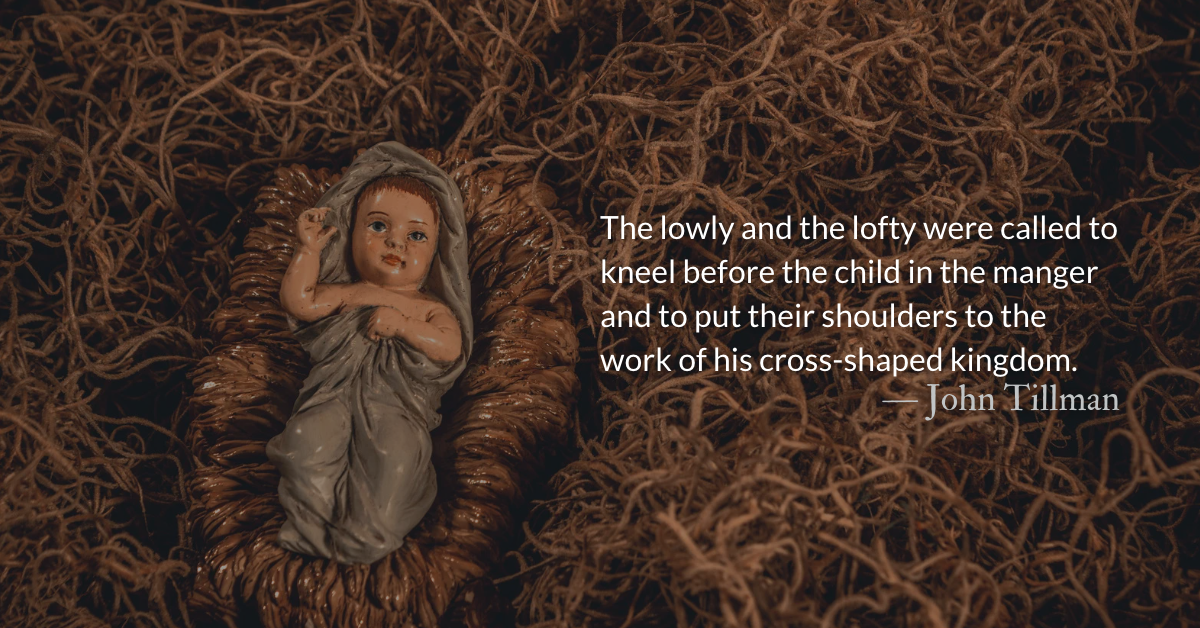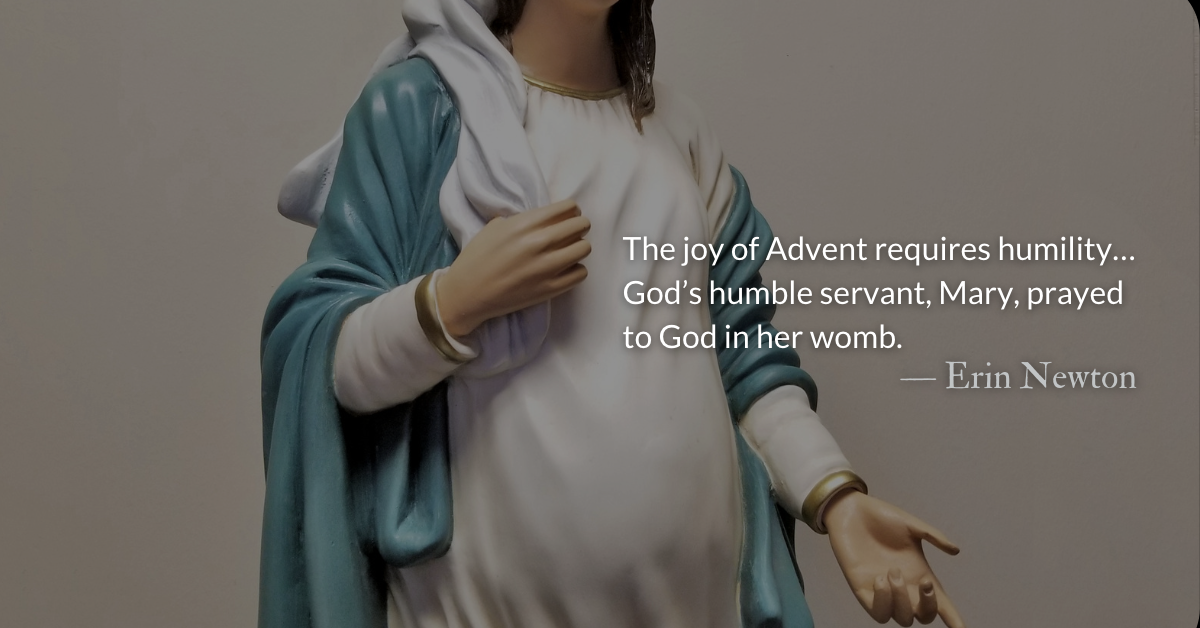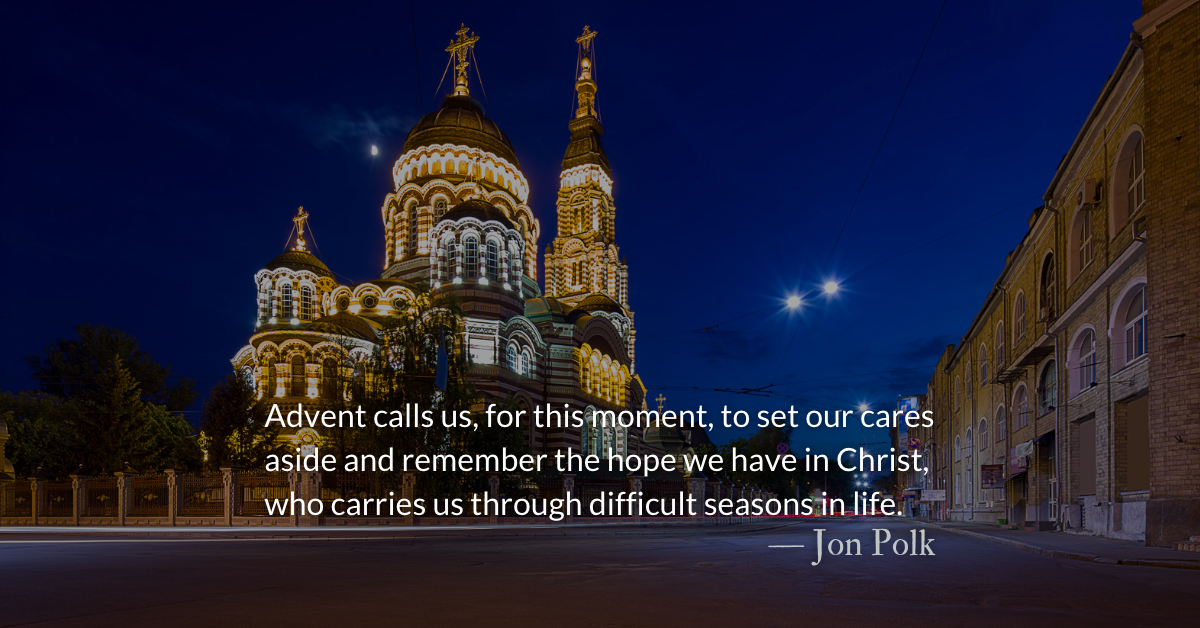Scripture Focus: Luke 1.18, 34, 37
Zechariah asked the angel, “How can I be sure of this?”
“How will this be,” Mary asked the angel, “since I am a virgin?”
“…no word from God will ever fail.”
Reflection: In the Face of the Impossible
By John Tillman
Luke plunges into visionary tales of the impossible and people who, to one degree or another, expressed doubts, reservations, and fears, and felt themselves unqualified for the task.
Madeleine L’Engle, in her book, Walking on Water marvels at how often God gave glorious visions and impossible tasks to those who were ill equipped.
“We are all asked to do more than we can do. Every hero and heroine of the Bible does more than he would have thought it possible to do, from Gideon, to Esther, to Mary. Jacob, one of my favorite characters, certainly wasn’t qualified. He was a liar and a cheat; and yet he was given the extraordinary vision of angels and archangels ascending and descending a ladder which reached from earth to heaven.
In the first chapter of John’s Gospel, Nathanael is given a glimpse of what Jacob saw, or a promise of it, and he wasn’t qualified, either. He was narrow-minded and unimaginative, and when Philip told him that Jesus of Nazareth was the one they sought, his rather cynical response was, “Can anything good come out of Nazareth?” And yet it was to Nathanael that Jesus promised the vision of angels and archangels ascending and descending upon the son of man.”
God chooses to do the impossible with the unqualified, to frustrate the wise with the foolish, and to overthrow the strong with the weak. He subverts the systems we rely on and reminds us that our competence is an illusion and his grace shown through us comprises all that is good in the world.
We face the impossible, like Zechariah, when the world sees us as cursed and broken.
We face the impossible, like Mary, when the world strives to keep us powerless and vulnerable.
In the face of the impossible we are forced to keep our faith where it always should have been—on God. We are not qualified, but, L’Engle concludes, God will be glorified.
“In a very real sense, not one of us is qualified, but it seems that God continually chooses the most unqualified to do his work, to bear his glory. If we are qualified, we tend to think that we have done the job ourselves. If we are forced to accept our evident lack of qualification, then there’s no danger that we will confuse God’s work with our own, or God’s glory with our own.“
Divine Hours Prayer: The Greeting
Not to us, O Lord, not to us, but to your Name give glory; because of your love and because of your faithfulness. — Psalm 115.1
– From The Divine Hours: Prayers for Springtime by Phyllis Tickle.
Today’s Reading
Exodus 18 (Listen 3:54)
Luke 1.1-38 (Listen 9:26)
Read more about Angelic Visions Require Childlike Faith
Madeleine L’Engle was often perplexed at the tendency of scholarly Christians to hold at arm’s length the angels and miracles of the Bible.
Read The Bible With Us
Our Bible reading plan is immersive with a sustainable, two-year pace. Walk with us through God’s Word and reflect on the beauty revealed by a slower pace.











